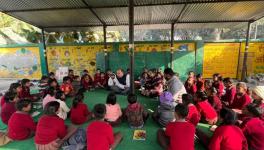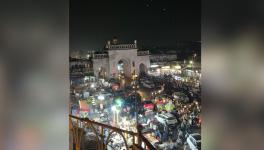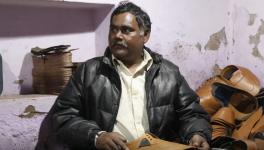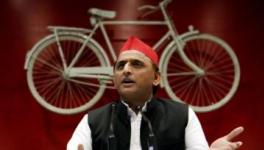From Muzaffarnagar, Dadri to Hathras: An Anatomy of Dominant Castes in Western UP
Representational use only.
On September 29, the Hathras gang-rape survivor succumbed to injuries inflicted by the four accused, Rajput men of a dominant caste, from her own village. September 28, a day prior, marked five years since Mohammad Akhlaq was killed in Bisahda village of Dadri by a mob led by Rajputs.
While the deceased gang-rape survivor belonged to a family of agricultural workers and was from the Valmiki caste, the murdered Akhlaq was an iron-smith and Muslim. Time and again, some have raised concerns that caste and religion should not be highlighted while reporting on such crimes, as it only leads to a further creation of binaries and ‘othering’ in society. It is also true that there have been several cases of rape, murder, and similar gruesome crimes which do not fall into stark caste or communal binaries. However, an important distinction to be noted is that what happened in Hathras or Dadri were essentially hate crimes, and need to be spoken about, understood and fought against.
The Merriam-Webster dictionary defines a hate crime as ‘any of various crimes (such as assault or defacement of property) when motivated by hostility to the victim as a member of a group (such as one based on color, creed, gender, or sexual orientation)’. In the Indian context, hate crimes based on caste and communal hostility are a grim reality. The hegemonic rise of Hindutva politics in the recent past, and its constant invention of old and new enemies has only worsened the situation.
Western Uttar Pradesh has often been dubbed a ‘Hindutva laboratory’ -- the region has a long history of communal riots and caste violence, which has led to an even more volatile and fractured society. Instead of curbing these tensions, a course of action expected from a secular and democratic state, political leadership and the state apparatus has continued to shield, perpetuate and even participate in such hostilities. The scars of the Hashimpura massacre, during the Meerut riots of 1987, when the Provincial Armed Constabulary (PAC) personnel picked up 42 Muslim youths from Hashimpura and mass murdered them, are still fresh in our collective memory. Violence and riots have become so normalised in the region that they have become a cruel joke in our lives – as children we would often joke among ourselves that rioting is our national sport in Meerut!
A major turning point in the history of the region was the Muzaffarnagar riots of 2013. Prior to it, all major riots were confined to urban areas with little to no effect on the rural countryside in the region. The rural countryside of western Uttar Pradesh has its own peculiar political trajectory of farmer movements led by a coalition of various dominant-caste farmer organisations, largely coming together, first under the leadership of Chaudhary Charan Singh, and later under Mahendra Singh Tikait.
The kisan identity of a landed farmer was championed, and communal tensions were sought to be minimised by these movements. However, post-liberalisation of the Indian economy in 1991, the agricultural sector increasingly stopped receiving state patronage and agricultural incomes started to shrink rapidly. This shook the economic basis on which the dominant-caste farmers mobilised and organised themselves, and farmer movements in the region saw a steep decline ever since.
Shrinking agricultural incomes coupled with decreasing land-holdings from one generation to another, also led to the economic basis of dominance by the dominant castes being threatened and challenged. However, conspicuous consumption and extravagant expenditure by dominant castes continues, as it is key to maintaining their social status. This has led to a situation of intense economic constraints for fulfilling their consumption habits and patterns, and increased anxiety among members of dominant castes, which is then directed into caste consolidation and communal mobilisation. During the author’s own fieldwork in the region, dominant caste families are often cited saying that Dalit youth are better off than Rajput youth as they can easily migrate to urban centers to perform manual labour, while Rajput youth will rather choose to sit idle at home as manual labour for others is not worthy of their status. Such notions are presented by Rajputs as justification of their anti-reservation bias and caste animosity towards Dalits, as they claim themselves to be ‘victims’ of their own social status!
It is in this context that the Muzaffarnagar riots of 2013 saw the participation of dominant caste youth in large numbers, sowing the seeds of a Hindutva frenzy mob in the rural countryside. In a village in Saharanpur, the author met a Rajput boy scolding a Pandit RSS functionary as they themselves had to do all the work which the RSS was supposed to do. Upon enquiry, it was revealed that the Rajput boy and his friends had just caught and beaten up a Muslim man on the suspicion of transporting cows for slaughter. A Frankenstein’s monster of a communal mob rooted in caste dominance has been created.
It is no secret that since Ajay Singh Bisht (Yogi Adityanath) has become Chief Minister of Uttar Pradesh, Rajputs have been assertive in reaching out for key positions within the government the and state machinery. The caste brotherhood also extends to shielding criminals, even hailing them as heroes. One of the accused in Dadri mob lynching case, Vishal Singh, was seen sitting in the front row at a BJP election rally in March 2019, where Yogi Adityanath accused the erstwhile Samajwadi Party government of ‘shamelessly suppressing the emotions of the villagers’ who had participated in the lynch mob. He further added that all unauthorised slaughter houses in the state have been ordered to shut-down by his government (thus justifying the stated motive of the mob lynching incident), and people in western Uttar Pradesh are living a peaceful life under the BJP rule!
It is in the context of such social sanction and political patronage by the state government that hate crimes are not only being committed, but even encouraged. The dominant castes are now compensating for their decreasing stranglehold over rural economy by supplanting it with increasing caste violence and communal frenzy to perpetuate their social control. Unless and until the core of this problem infesting our rural societies is taken cognisance of and rectified, western Uttar Pradesh is bound for a downward spiral.
The author is a PhD research fellow in sociology at Ambedkar University, Delhi. The views are personal.
Get the latest reports & analysis with people's perspective on Protests, movements & deep analytical videos, discussions of the current affairs in your Telegram app. Subscribe to NewsClick's Telegram channel & get Real-Time updates on stories, as they get published on our website.
























